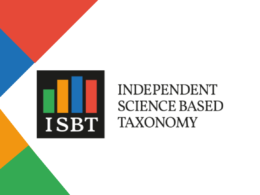The Climate Bonds Initiative has unveiled a new set of Alternative Proteins Criteria, establishing a science-based framework aimed at steering sustainable finance towards one of the most pressing climate solutions in the agrifood sector.
Announced today, the Criteria mark the first dedicated standard for certifying investments in alternative protein production and distribution under the Climate Bonds Standard. The framework is intended to guide investors, industry leaders, and policymakers in aligning capital flows with climate goals, particularly in the context of the global food system’s contribution to greenhouse gas emissions and biodiversity loss.
Livestock agriculture accounts for around 60% of agrifood system emissions and contributes between 2% and 20% of global greenhouse gas emissions, while supplying only 17% of global calories and 38% of protein. Shifting away from conventional meat and dairy production is seen by experts as one of the most impactful climate mitigation strategies within the food sector.
The new Criteria outline eligibility requirements for financial instruments such as green bonds, use-of-proceeds debt, and sustainability-linked debt, enabling the certification of investments into a range of alternative protein technologies. These include wholefood and traditional plant- and fungi-based proteins, novel plant-based proteins, fermentation-derived proteins, cultivated meat, and blended protein products.
India Langley, Sustainability Analyst (Agri-Food) at the Climate Bonds Initiative, described the Criteria as a market-first. “With the alternative proteins market projected to reach USD 1.1 trillion by 2050, this framework provides a critical tool to unlock capital for agrifood system transformation.”
Rosie Wardle of Synthesis Capital, a member of the technical working group behind the Criteria, noted: “Alternative proteins are among the most effective climate mitigation strategies in food. Scaling this sector is essential for a resilient and sustainable food system.”
Aditi Mukherji of the Climate Change Impact Platform added that while animal-sourced foods remain important in lower-income contexts, overconsumption in high-income nations continues to harm health and the environment.
“Alternative proteins offer a sustainable, high-protein solution. The launch of this framework is timely in helping direct green finance into the sector.”
As demand for climate-aligned food systems grows, the Climate Bonds Initiative says the new Criteria represent a significant step towards mobilising investment in low-emission, sustainable food production — reinforcing global net-zero ambitions and reshaping the future of protein consumption.





















